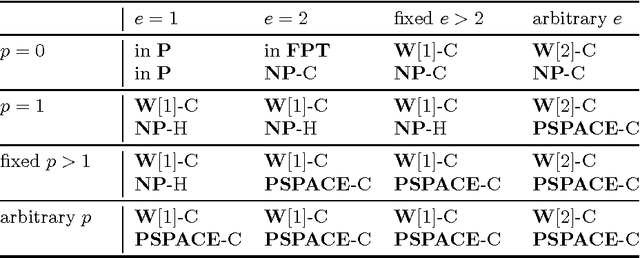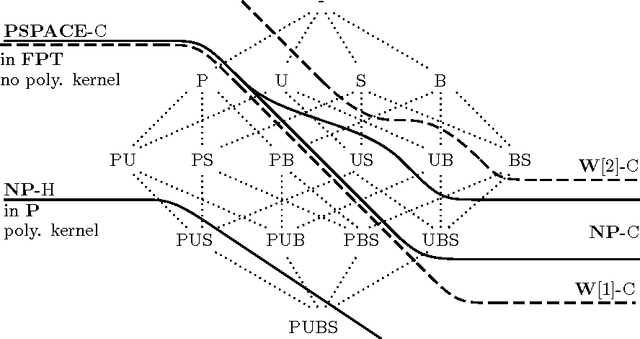A Complete Parameterized Complexity Analysis of Bounded Planning
Paper and Code
Oct 29, 2013

The propositional planning problem is a notoriously difficult computational problem, which remains hard even under strong syntactical and structural restrictions. Given its difficulty it becomes natural to study planning in the context of parameterized complexity. In this paper we continue the work initiated by Downey, Fellows and Stege on the parameterized complexity of planning with respect to the parameter "length of the solution plan." We provide a complete classification of the parameterized complexity of the planning problem under two of the most prominent syntactical restrictions, i.e., the so called PUBS restrictions introduced by Baeckstroem and Nebel and restrictions on the number of preconditions and effects as introduced by Bylander. We also determine which of the considered fixed-parameter tractable problems admit a polynomial kernel and which don't.
 Add to Chrome
Add to Chrome Add to Firefox
Add to Firefox Add to Edge
Add to Edge